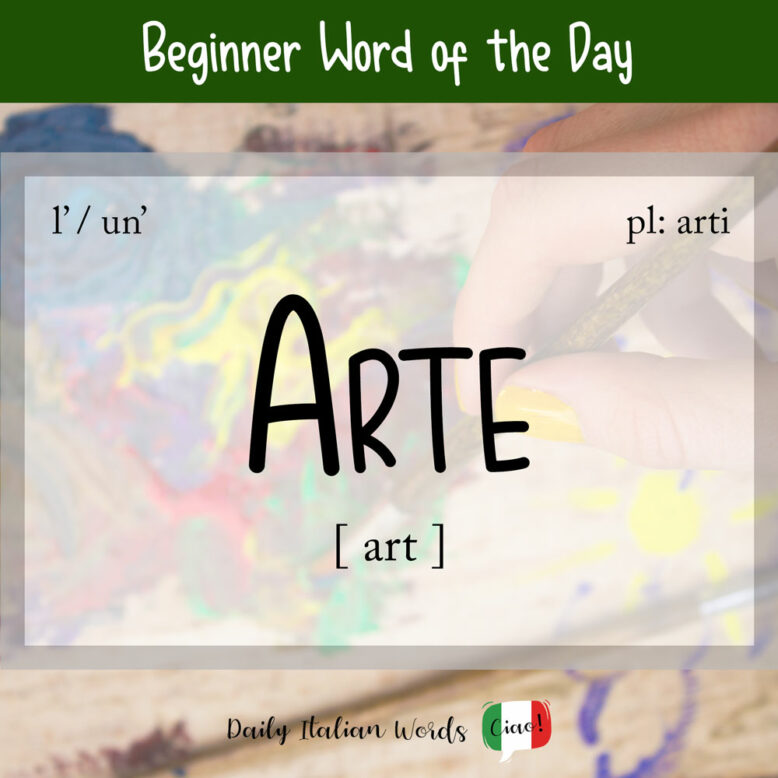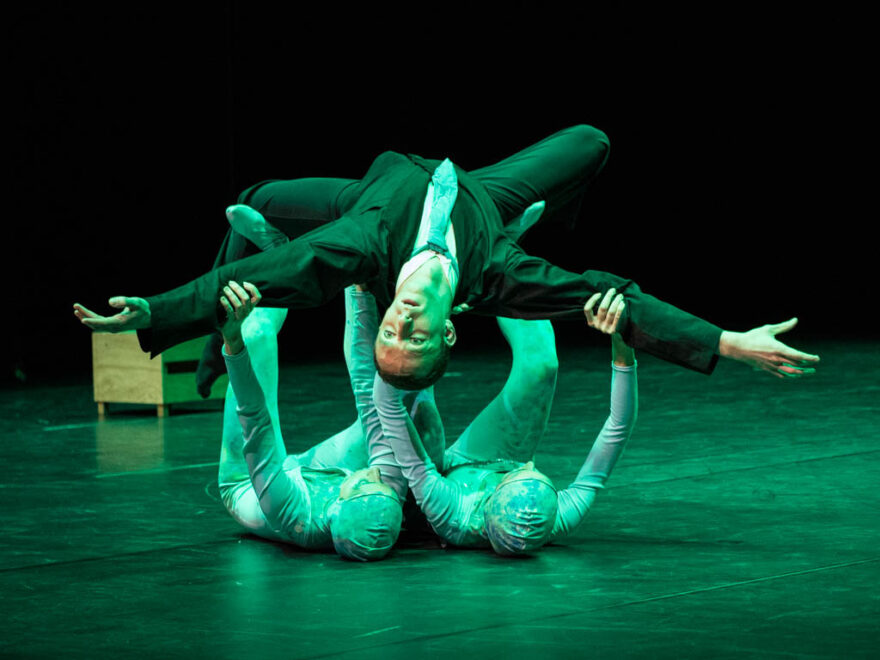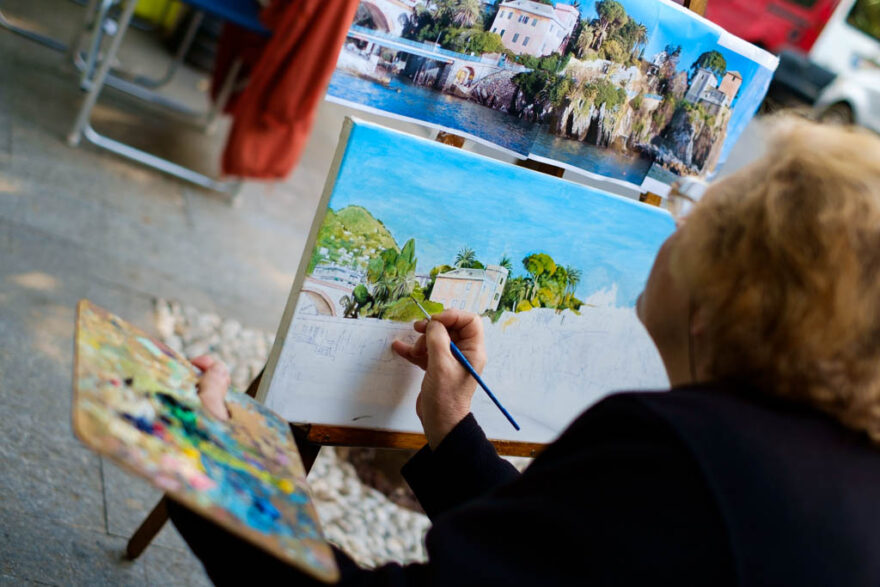Art is the uniquely human skill of being able to consciously create something beautiful or meaningful by employing skill and imagination. Typically visual but also auditory and theatrical, art can assume many forms including paintings, sculptures, music, architecture and more.
In Italian, all you need to do is add an e to the end of the English word to create the word arte (feminine, plural: arti)

You can use the term opera d’arte to call something a work of art.
La Gioconda è l’opera d’arte più importante di Leonardo Da Vinci.
The Mona Lisa is Leonardo Da Vinci‘s most important work of art.
Over the years, arte has been classified into a number of art forms. Some of them are still used today:
- arti maggiori (major guilds) = secular corporation of artisans, merchants and professionals in the Guilds of Florence during the XII and XIII centuries (judges, bankers, notaries, etc.)
- arti minori (minor guilds) = in the Guilds of Florence, there were smaller corporations of artisans (blacksmiths, shoemakers, etc.). Today it is still used to categorise arts linked to crafting.
- arti superiori = paintings and music that were considered superior to other arts by Leonardo Da Vinci
- arte sacra = sacred/religious furniture and buildings
- belle arti = a category that includes sculptures, paintings, music, theatre, cinema, photography, literature, architecture and dance
- arte contemporanea = contemporary art
- arti liberali = in the Middle Ages, these were activities that required mental, intellectual effort as opposed to physical effort (arti meccaniche means mechanical arts)
- arti visive = visual arts
- arti marziali = martial arts
Note: the plural of arte is arti. However, keep in mind that the latter is also the plural of arto which means limb or appendage.

In Italian, you can use the noun arte to talk about the skills of a specific craft, using either the noun of the profession or the noun of the material involved:
- l’arte del fabbro = the art of the blacksmith
- l’arte del ferro = the art of iron
- l’arte del falegname = the art of the carpenter
- l’arte del legno = the art of wood
Marco è un maestro nell’arte della seduzione.
Marco is a master in the art of seduction.
The word for artist in Italian is very similar to the English: you just add an a to the end: artista.

Often, artists use nicknames rather than their real name. In Italian, you can say nome d’arte (stage name) or in arte.
Ti presento Adelmo Fornaciari, in arte Zucchero.
I introduce to you Adelmo Fornaciari, whose stage name is Zucchero.
If you want to describe something as being artistic, you can use the adjective artistico.
Dopo aver frequentato il liceo artistico, Mario è diventato direttore artistico del festival del cinema.
After attending the arts high school, Mario became the artistic director for the cinema festival.
Artisticamente is the adverb artistically that you can use to talk about something from an artistic point of view.
Artisticamente parlando (dal punto di vista artistico), questa fotografia ha dei colori splendidi.
Artistically speaking (from an artistic point of view), this photograph has splendid colours.
Finally, we have some expressions with the word arte such as:
- figlio/a d’arte = (lit. son of art) son or daughter of an artist
- fatto a regola d’arte = (lit. made to art rules) made to perfection
- fatto ad arte = (lit. made to art) made on purpose
- essere senza arte né parte = (lit. being without arts and parts) being without a job and assets

Artist quotes with the word “arte”
To conclude, here is a list of quotes said or written by famous artists about art and its significance.
Si usano gli specchi per guardarsi il viso, e si usa l’arte per guardarsi l’anima.
We use mirrors to look at our face, and we use art to look at our soul.
(George Bernard Shaw)
Per me l’arte viene prima della democrazia.
For me art comes before democracy.
(Alfred Hitchcock)
Ama l’arte; fra tutte le menzogne è ancora quella che mente di meno.
Love art; between all the lies, it is again the one that lies the least.
(Gustave Flaubert)
Quando un’opera d’arte sembra in anticipo sul suo tempo, è vero invece che il tempo è in ritardo rispetto all’opera.
When a work of art seems ahead of its time, it is true instead that the time is late compared to the work.
(Jean Cocteau)
Le arti sono le foreste pluviali della società. Producono l’ossigeno della libertà, e sono il primo sistema d’allarme a scattare quando la libertà è in pericolo.
The arts are the rainforests of society. They produce the oxygen of freedom, and they are the first alarm system to go off when freedom is in danger.
(June Wayne)
L’arte è una menzogna che ci consente di riconoscere la verità.
Art is a lie that allows us to identify the truth.
(Pablo Picasso)
Con un’opera d’arte bisogna avere il comportamento che si ha con un gran signore: mettervisi di fronte e aspettare che ci dica qualcosa.
With a work of art, we need to have the same behaviour we have with a gentleman: to go in front of him and wait for him to say something.
(Arthur Schopenhauer)
L’arte non ha bisogno di alcuna risposta. È una domanda che vuole restare tale.
Art doesn’t need any answer. It is a question that wants to remain so.
(Claudio Parmiggiani)
La cultura è la regola; l’arte è l’eccezione.
Culture is the rule; art is the exception.
(Jean-Luc Godard)
Quando i banchieri si riuniscono per cena, discutono di arte. Quando gli artisti si riuniscono per cena, discutono di denaro.
When bankers gather for dinner, they talk about art. When artists gather for dinner, they talk about money.
(Oscar Wilde)
Mathieu Gasquet was born and raised in Turin in the north of Italy to an Italian mother and a French father. He provides the audio pronunciation for Daily Italian Words.


